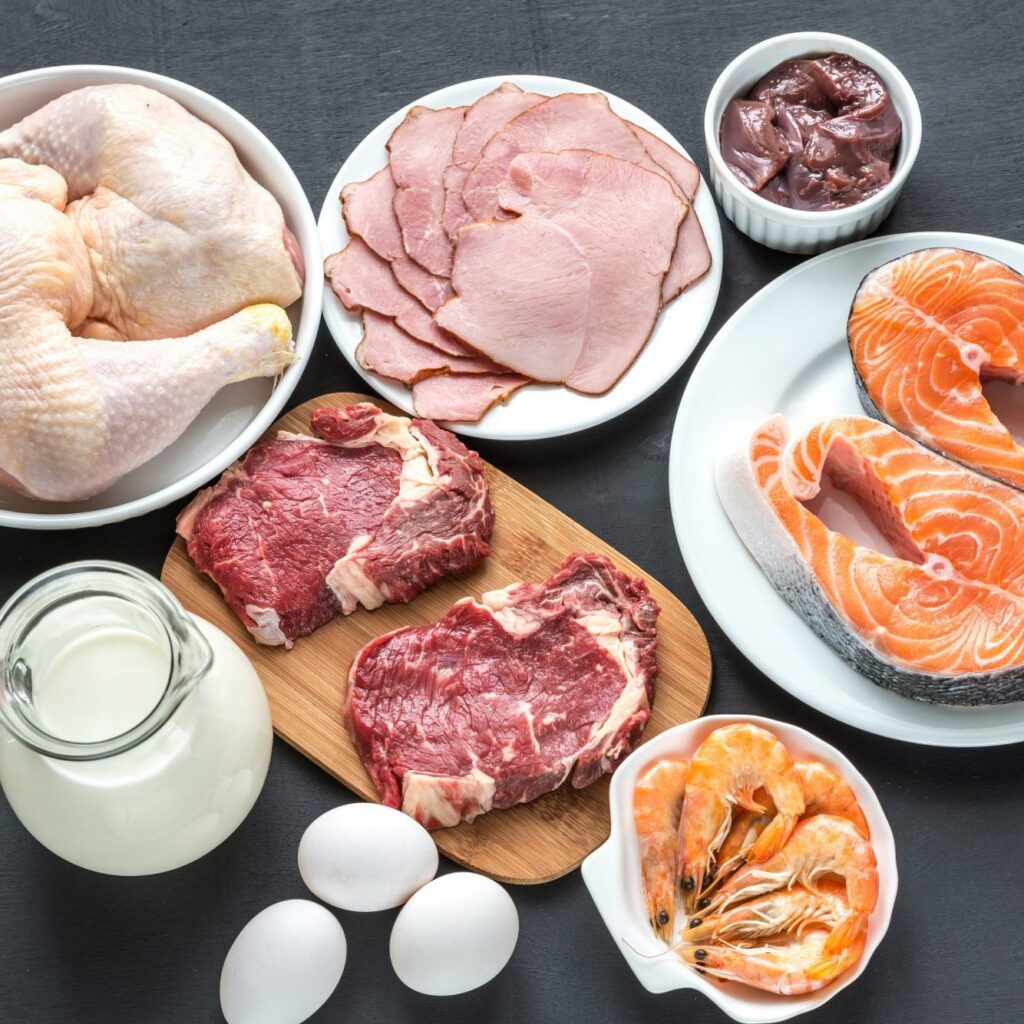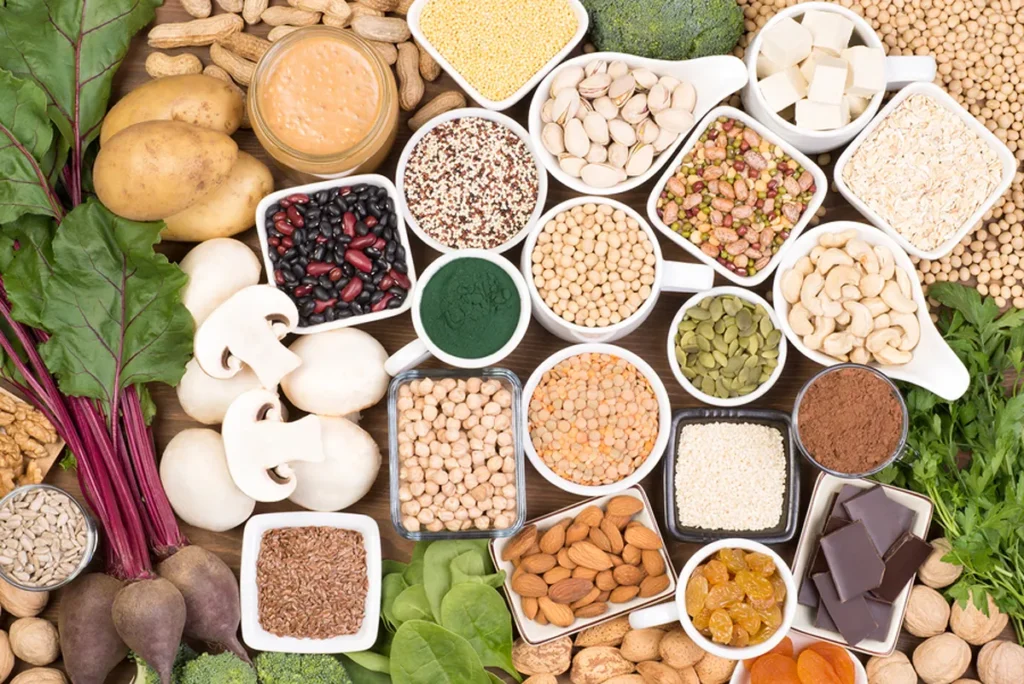Iron, a mighty mineral, plays a pivotal role in the tapestry of human health. It’s the silent hero behind the scenes, facilitating the transportation of oxygen in our blood, bolstering our immune system, and ensuring overall vitality. Without adequate iron, the body’s functionality can wane, leading to a range of health concerns. This article seeks to shed light on the essential question: “What foods are high in iron?”
Iron’s significance extends far beyond its mere presence in our diets. It is the cornerstone of our physiological well-being, influencing our energy levels, cognitive functions, and the capacity of our muscles to carry out everyday tasks. Understanding the dietary sources of iron and how to incorporate them into our meals is paramount to maintaining optimal health.
In the pages that follow, we will explore the intricate world of dietary iron. From the types of iron to daily recommendations and a comprehensive list of both animal and plant-based sources, we will unlock the secrets to a well-rounded iron-rich diet. Additionally, we’ll delve into iron absorption enhancers and inhibitors, providing practical guidance on optimizing your iron intake.
Join us on this informative journey, and empower yourself with the knowledge needed to make iron a fundamental part of your balanced diet. Let’s embark on the quest to discover “What Foods Are High in Iron” and equip ourselves with the tools to safeguard our health and vitality.

Animal-Based Foods High in Iron
When it comes to iron-rich foods, animal-based sources are often at the forefront. These foods provide heme iron, which is more readily absorbed by the body compared to non-heme iron found in plant-based sources.
a. Red Meat
Red meat, particularly beef and lamb, is a standout source of heme iron. A 3.5-ounce (100-gram) serving of cooked beef can deliver up to 2.7 milligrams of iron, which is around 15% of the recommended daily intake for adult men and postmenopausal women. Lamb is another excellent choice, offering similar iron content.
b. Organ Meats
If you’re looking to maximize your iron intake, consider adding organ meats to your diet. Liver, in particular, is a nutritional powerhouse, boasting exceptionally high iron content. Just a 3.5-ounce serving of cooked beef liver provides a whopping 6.2 milligrams of iron, meeting more than one-third of the daily recommended intake for adult men.
c. Poultry
Chicken and turkey are lean sources of heme iron, with about 0.7-1.2 milligrams of iron per 3.5-ounce serving. While poultry contains less iron than red meat or organ meats, it remains a valuable part of a balanced diet, contributing essential protein and other nutrients.
d. Fish
Certain fish varieties also offer significant iron content. Canned sardines are a notable example, providing approximately 2.5 milligrams of iron per 3.5-ounce serving. In addition to iron, they supply heart-healthy omega-3 fatty acids and calcium, making them a nutritious choice for those seeking to boost their iron intake.
e. Shellfish
Shellfish like oysters and clams are renowned for their iron content. A 3.5-ounce serving of cooked oysters contains about 6 milligrams of iron, while clams offer approximately 3 milligrams in the same serving size. These delectable choices are not only rich in iron but also an excellent source of zinc and vitamin B12.
While animal-based sources of iron are potent, it’s crucial to maintain a balanced diet that incorporates both animal and plant-based options to meet your nutritional needs. Now, let’s turn our attention to plant-based foods that are also high in iron.

Plant-Based Foods High in Iron
For those who follow a vegetarian or vegan diet or are simply looking to diversify their sources of iron, plant-based foods provide an excellent array of options. While plant-based iron sources contain non-heme iron, which is not as readily absorbed as heme iron, they can still contribute significantly to your daily iron intake when incorporated into a well-balanced diet.
a. Legumes
Legumes are a nutritional powerhouse and a primary source of non-heme iron. They include:
- Lentils: A half-cup of cooked lentils provides about 3.3 milligrams of iron.
- Chickpeas: The same serving size of cooked chickpeas offers around 2.9 milligrams of iron.
- Beans: Whether it’s kidney beans, black beans, or pinto beans, a half-cup serving yields roughly 2-3 milligrams of iron.
b. Nuts and Seeds
Nuts and seeds are not only a source of iron but also healthy fats, protein, and various other essential nutrients. Some examples include:
- Pumpkin Seeds: A quarter-cup of pumpkin seeds contains approximately 4.2 milligrams of iron.
- Almonds: The same serving size of almonds provides around 1.5 milligrams of iron.
- Sunflower Seeds: A quarter-cup of sunflower seeds offers about 1.2 milligrams of iron.
c. Whole Grains
Whole grains are not just a significant source of dietary fiber; they also contain non-heme iron. Consider incorporating these grains into your diet:
- Quinoa: One cup of cooked quinoa delivers approximately 2.8 milligrams of iron.
- Fortified Cereals: Certain breakfast cereals are fortified with iron, offering varying amounts depending on the brand and type. Be sure to check the nutrition label.
d. Leafy Greens
Leafy green vegetables are a staple in plant-based diets and provide various essential nutrients, including iron:
- Spinach: A half-cup of cooked spinach contains about 3.2 milligrams of iron.
- Kale: The same serving size of cooked kale provides roughly 1.1 milligrams of iron.
e. Dried Fruits
Dried fruits can be a convenient and portable source of iron:
- Apricots: A half-cup of dried apricots supplies around 1.5 milligrams of iron.
- Raisins: The same serving size of raisins offers approximately 1.4 milligrams of iron.
f. Tofu and Tempeh
Soy-based products like tofu and tempeh are not only rich in plant-based protein but also contain iron:
- Tofu: A half-cup of tofu provides about 3.4 milligrams of iron.
- Tempeh: The same serving size of tempeh yields roughly 2.2 milligrams of iron.
Incorporating these plant-based iron sources into your meals can help you maintain a healthy iron intake, even if you follow a vegetarian or vegan lifestyle. Pairing them with vitamin C-rich foods can enhance iron absorption, ensuring your body reaps the full benefits of these plant-based sources.
